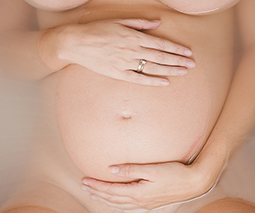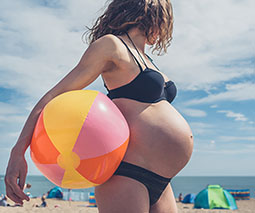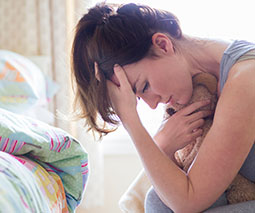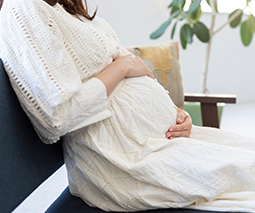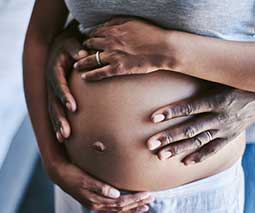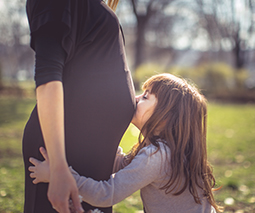Beyond the baby blues: The dangerous mental illness that is postnatal psychosis
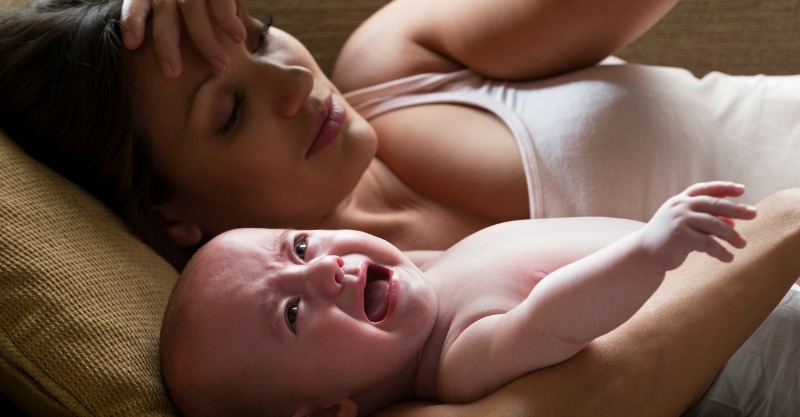
One in seven women and one in 10 men experience postnatal depression and anxiety after the birth of their baby. It’s a serious and often crippling condition, but there is another, more dangerous mental illness that is less widely known, and it’s called postnatal psychosis.
What is postnatal psychosis?
Also known as puerperal psychosis, postnatal psychosis is a very serious mental illness which, like postnatal depression, can present shortly after a woman has given birth. The symptoms are much more severe, with a new mum often experiencing delusions, hallucinations, a big change of character, suicidal thoughts and a sense of having lost their grip on reality, all of which can put their life and that of their baby at risk.
A serious, secret illness
Terri Smith, the CEO of Perinatal Anxiety and Depression Australia (PANDA), says around 1 in 500 mums develop a full blown case of postnatal psychosis, that almost always results in the mother being admitted to hospital. As is often the case with psychosis, the mother doesn’t realise anything is wrong, and this frightening mental illness often goes undetected and without treatment.
“Postnatal psychosis is one of the best kept secrets in the whole motherhood business,” says Terri.
“It manifests in lots of different ways with some women having a voice driving them. But even if it’s not that extreme, all [sufferers] will generally be detached from reality. Which is pretty scary when they’re looking after small baby.”
What causes postnatal psychosis?
The cause of postnatal psychosis is still unknown, but women who have experienced it previously after the birth of a child, or who have a bipolar disorder, or those who have a family history of either condition, are more at risk. But it can also develop in women with no prior history of mental illness.
While some women experience postnatal psychosis after the birth of all of their babies, for many women it will occur only once. It is believed the hormonal changes during childbirth coupled with extreme sleep deprivation could also be contributing factors, and for a small percentage of women the condition is the first sign of bipolar disorder.
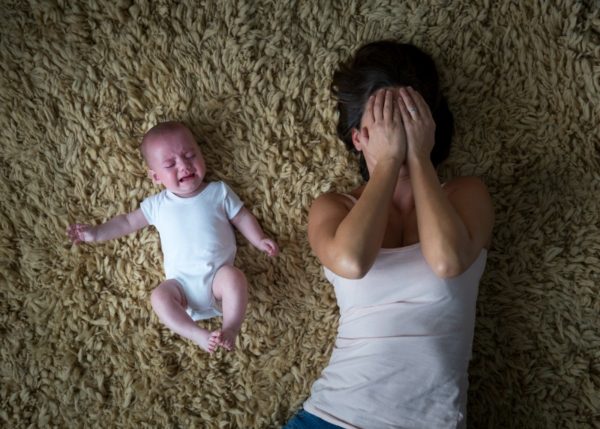
Signs and symptoms
Symptoms of postnatal psychosis usually occur within the first four weeks after childbirth, but in some cases they can take up to 12 weeks to manifest, with many of the signs not recognised until even later than this. Changes in the mother can be sudden and dramatic and come as a complete shock to those around them.
Key symptoms to look out for include:
- Unable to sleep or eat, or feeling no need to sleep
- Full of energy, restless, agitated or manic (fast talking and not finishing sentences)
- Feeling an urgent need to get things done
- Hearing voices or seeing things that aren’t there
- Feeling super strong and invincible
- Unusual thoughts, such as believing their baby has special powers, someone should punish them for being a bad mother, or that someone is trying to harm their baby
- A desire to die or thoughts about harming themselves or their baby
- Suspicious of others and argumentative
- Very confused and difficulty concentrating
- Forgetful and disorganised, or unusually super organised and over productive
- Overspending and making unrealistic plans
- Not coping with basic tasks and withdrawing from others
- Feeling hopeless and worthless as a mother
- Extreme mood swings, aggressive or violent, persistently depressed or overly excited
Getting help quickly is essential
Terri says that while some mums reach out to PANDA or other medical practitioners for help, in most cases it is the woman’s partner who recognises something is wrong and seeks help.
“The mother is kind of doing okay because she can’t identify what’s wrong, she ‘knows’ what she’s doing,” says Terri.
This is why it’s extremely important for loved ones and partners to be aware of the signs and seek help immediately if they see them in a woman who has recently given birth. Due to the dangerous thoughts and impulsive behaviour a mother with the condition may have, it’s treated as a life threatening medical emergency.
“Women need to be hospitalised pretty quickly because babies can be at physical risk. It’s the scariest thing for everyone and often these women won’t remember what’s happened afterwards,” adds Terri.
Treatment and care for those with postnatal psychosis
While it’s a severe, life threatening mental illness, postnatal psychosis is treatable and not permanent.
Women with postnatal psychosis will almost always require an urgent admission to hospital to receive a specialised psychiatric assessment, medication and other treatment and care. Once it’s deemed safe for them to be around their baby and on their own again, they will be allowed home with ongoing treatment and therapy required until no longer necessary.
Terri says it’s a very tough time for the new mother, partner and other family members.
“Most women will get better but it does impact their whole family, with mum usually away in a mental health ward for some time. Then afterwards some might carry some of the symptoms like depression for years, and other complications like financial stress or being sleep deprived and still feeling your way in the dark as a new parent can add to the complications as well.”
The good news is that with time and ongoing support women generally do make a full recovery and are able to become the mother they originally thought they’d be.
Making it known
Terri believes that the more people talk about mental health issues, such as perinatal depression and anxiety and postnatal psychosis, the more mums and families who are struggling or in danger will get the support they so desperately need.
“I don’t think there’s a transition in life that’s as challenging as becoming a parent, although it’s also the most natural thing in the world. Add a mental health issue to that and it becomes even more complicated,” says Terri.
“The key is to acknowledge something is wrong with yourself or your loved one, and get help as soon as possible to help the entire family — especially if there are other kids. Unfortunately there are lots of women who will never be diagnosed or get treatment because they don’t identify as having a problem, so it’s really important to talk about this more.”
If you or someone you know is showing signs of postnatal psychosis, please contact the PANDA helpline on 1300 726 306, or for more information visit their website at www.panda.org.au. In the event of an emergency, please call 000.

